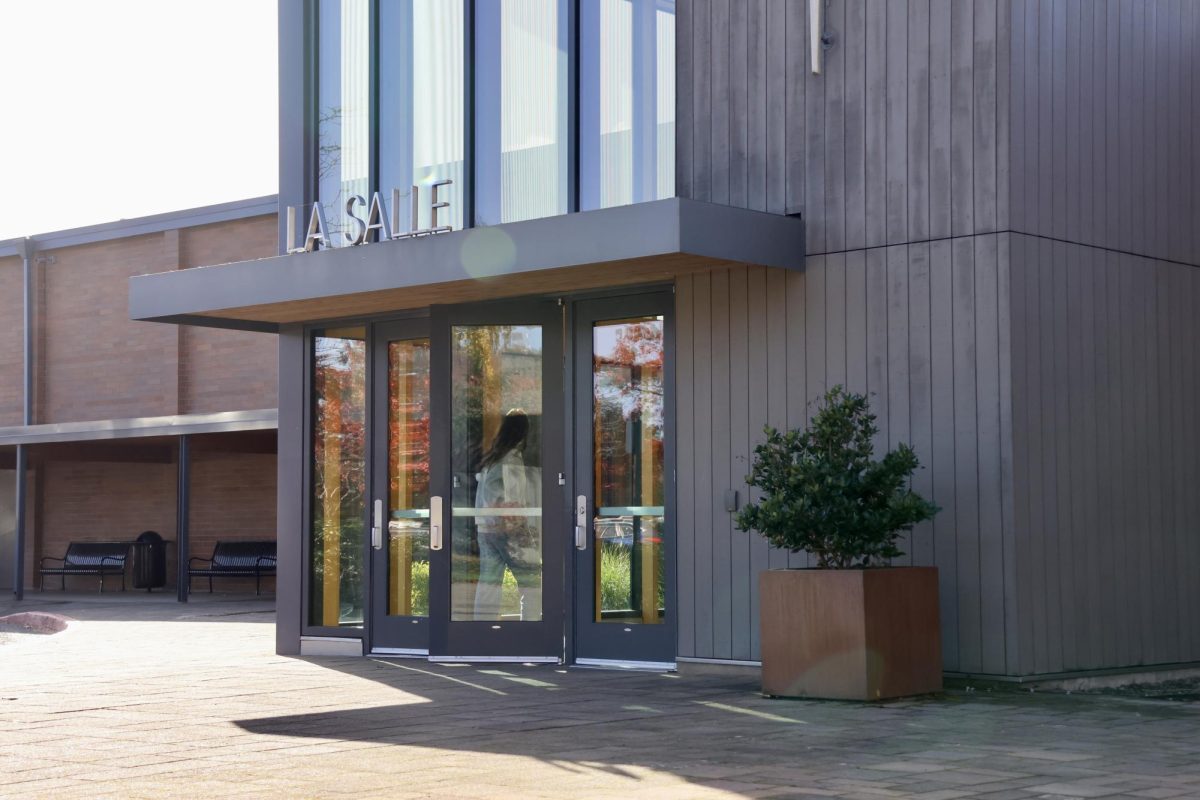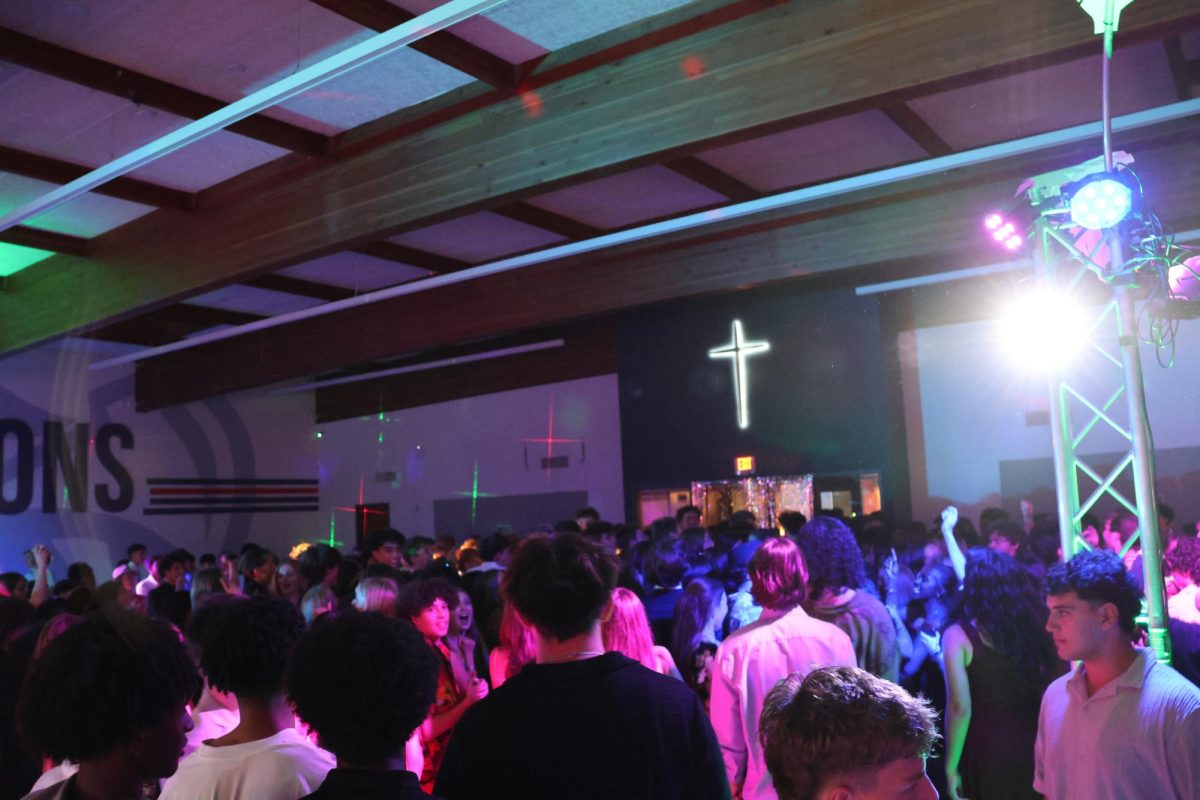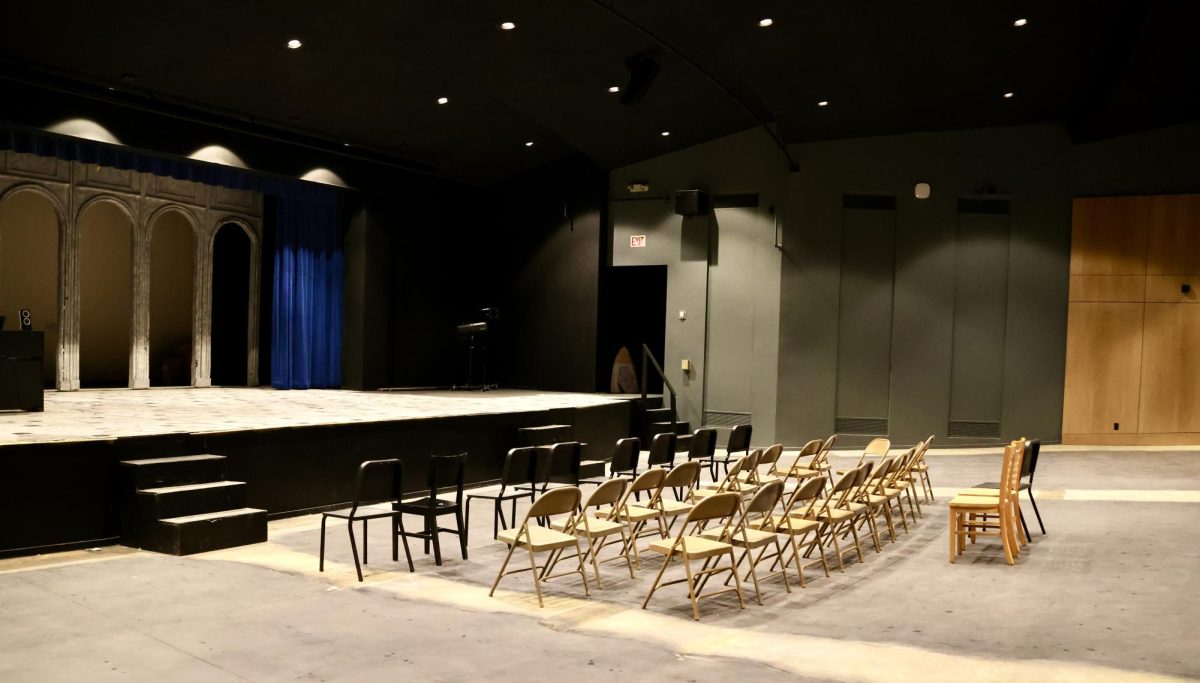With a shift in approach to the attendance policy this year, many have noticed a change.
More students are coming to class on time, and compared to last year, the rate of tardies and absences has decreased.
Dean of Students Ms. Kenzie D’Ambrosio emphasized this positive outcome, acknowledging that while the language in the attendance policy — as it’s described in the 2025-26 Student Handbook — only had minimal differences from the previous version, the enforcement of those rules has become more consistent.
“What I know is that there’s way fewer students arriving to school late,” she said. “Our students are doing a better job of getting to class on time, and it’s also showing in students’ grades.”
One way Ms. D’Ambrosio has increased consistency is by raising awareness and communication among parents. Since the start of the year, she has been more proactive with emails regarding a students’ attendance or lack thereof.
Vice Principal for Academics Ms. Kathleen Coughran said that part of the reason why proactiveness is a priority is because of a concern faculty shared regarding student attendance last year. Now, she believes there’s a “heightened awareness” around the attendance policy, and that “students are hearing [that] what we say in the handbook needs to happen.”
Spanish teacher Ms. Amy Gantt said that she’s had multiple days without any student absences whatsoever, and as a result of that overall improvement, she wondered if this is because of the attendance policy.
The 2025-26 Student Handbook states that three tardies warrant a 30-minute detention, potentially to take place on the same day, and that only 10 absences — excused or unexcused — are allowed in a semester. After exceeding 10, the Academic Review Board, composed of teachers and members of administration, determines whether or not a student should still receive credit for that course.
Ms. Coughran clarified that losing credit isn’t a “hard and fast rule,” but rather situational depending on the student.
“We’ve done some extensive looks at other folks’ handbooks, both Catholic schools in our area and other Lasallian high schools in the U.S., and most of them have some ambiguous language there as well,” she said.
She added that the review board aims to solve that ambiguity, create a space for teachers to learn more about a student’s circumstance, and implement some kind of accountability measure.
But to Ms. Gantt, the idea of a consequence, especially a strict one, plays a necessary part in holding students accountable.
“I want them to be here so that they can get everything possible, and they need to know that if they are not, then a consequence could be living ahead,” she said.
Throughout her time at La Salle, she noted that she has not seen any student lose credit for a course due to attendance issues, however, she supports the repercussion “100 percent” because it motivates students not to miss more school, encouraging their presence in the classroom.
And, according to Ms. Gantt, that time is essential.
“You get context with the teacher, context with your fellow classmates,” she said, before posing the hypothetical of a student being absent from school for a week. “Regardless of whether the student is a strong student or maybe one who struggles, they are still missing out.”
When students leave for more than two days for a pre-planned absence, Ms. Gantt gives them all homework and classwork in advance so that they can stay on track as best as possible with their peers. This way, “when they come back,” she said, “they can have a fighting chance of still feeling caught up.”
However, for some students, the tardy — or the absence — isn’t intentional.
Sophomore Gema Ruiz-Lopez received her first detention last year after being notified in an email. And the feeling, as she described, was not good.
“It put my self esteem down because I couldn’t manage it,” she said. “We also had to drop off my other brothers. It was like two brothers, two destinations, and then me, which — I’m all the way across from where they go to school. It really frustrated me. I was like, ‘oh gosh, I’m already going to detention in my first year.’”
She said that her commute this year leaves her in a similar situation, except instead of dropping off two siblings, it’s just one — whose destination is 30 minutes apart from La Salle. Ruiz-Lopez explained how this has caused her to be about 10 minutes late at least one day each week since the start of the school year, eventually leading to her second detention.
It was 30 minutes in the main office conference room after school, and according to her, was slightly better than before because at least she could distract herself with homework or the card games they provided, whereas previously, all she did was sit in silence.
But that day, Ruiz-Lopez had conditioning for basketball after school, and she was supposed to run a mile.
She worried that her coaches might have thought she intentionally skipped to avoid it, and that she wasn’t “proving” she could do the mile. Afterward, she said she told them what happened.
As a result, Ruiz-Lopez feels that detention takes away from time that could be better spent elsewhere, like after-school activities, or in her case, sports.
For junior Jack London, a player for the boys basketball team, he believes the policy has its pros and cons, but ultimately helps keep students, especially athletes, aware of their academic responsibilities.
“Honestly, I feel like it can be needed,” he said. “The school just wants to make sure they’re on track. Like, make sure they hold themselves accountable.”
In particular, Ms. D’Ambrosio believes the policy’s enforcement could help students prepare for life beyond La Salle.
“Part of the thing about being a college prep school is we are here to teach math and science,” she said. “But we’re also here to teach life skills, and one of them is about time management and learning how to get to school on time.”
The first tardy London ever received was last year after a morning basketball practice. Because he was really hungry afterwards, he went to Dutch Bros right before school started and knew that he’d only have a short amount of time to make it before the bell would ring. However, it did, right as he came in.
“There [were] like 20 other people with me, just all getting late slips,” he said. “And I was like, ‘that’s interesting.’”
Separately, as one of the 10 students to go to the week-long Blackfeet Immersion in late September to early October, London’s attendance was inevitably impacted, but he noted that his teachers and Ms. Coughran were very understanding in that respect.
“Mr. Powers made it very clear, Ms. Coughran made it very clear, and all my teachers made it very clear [that] I can take all the time I need to decompress, but also to bounce back,” he said.
London also emphasized the importance of communicating, explaining that the teachers at La Salle are “committed to the value of quality education and genuinely trying,” and keeping them informed about the given circumstances is crucial for staying on track.
“Most teachers are very forgiving, especially if you communicate,” he said. “That’s when the best relationship can form.”
Since the Academic Review Board was introduced this year, according to Ms. Coughran, the decision-making process is still being established. She explained that because students have not met the 10-absence threshold yet, there has not been a need for them to meet.
“We want to be equitable in how we treat students, but I also know that every student is dealing with something different and that attendance is different,” she said.
The need to balance a student’s circumstances with accountability ultimately raised a question for Ms. Coughran.
“How do we treat that in a way that gives the student dignity and respect, but also we hold our high standards of needing to be in class?” she said. “Class time is irreplaceable.”








![Mr. Owen Furlong, the temporary Campus Safety Monitor, grew up near La Salle and described how Christ the King was “basically [his] backyard for a long time.”](https://lasallefalconer.com/wp-content/uploads/2025/10/115A2328-1200x800.jpeg)






